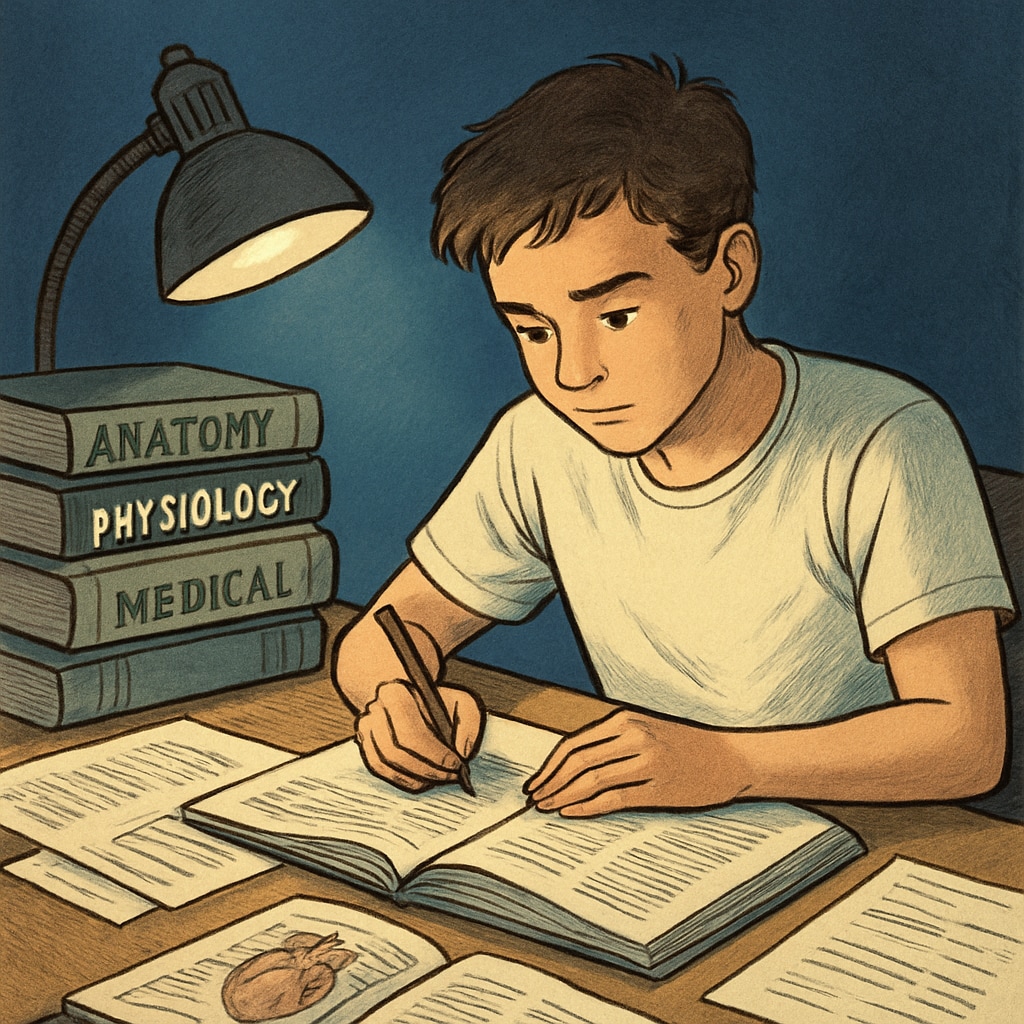Pursuing medical dreams within the modern education system is a journey fraught with challenges. For many K12 students, the path to a career in medicine is complicated by academic difficulties, overwhelming family pressure, and the often conflicting demands of personal aspirations and societal expectations. These struggles reveal significant flaws within educational frameworks, leaving students caught between their dreams and the realities of their circumstances.
While the allure of saving lives and making a difference drives countless young people toward the medical field, the road is often blocked by systemic barriers. The challenges of rigorous curricula, intense competition, and the need to meet family ideals can leave students feeling trapped and disillusioned. These pressures raise a critical question: How can young learners balance their ambitions with the demands of the system?

Academic Pressure: The Silent Struggle
One of the most significant obstacles in pursuing medical aspirations is the sheer intensity of academic requirements. K12 students face overwhelming workloads, including high-stakes exams, advanced science and math courses, and extracurricular commitments. For many, these demands create an environment of constant stress, leading to burnout and even mental health struggles.
For example, according to a study published by the Britannica Education Resource, nearly 60% of high school students report experiencing anxiety related to academic performance. As a result, many students feel their passion for medicine eroded by the pressure to succeed academically.
- Long study hours limit social and emotional development.
- Competition for top grades fosters unhealthy comparison among peers.
- Extracurricular demands add further strain.
To combat these challenges, schools and educators must prioritize mental health support and create systems that promote balanced learning environments. Encouraging collaboration over competition and emphasizing personal growth can help students remain motivated while preserving their well-being.
Family Expectations and Their Impact
For many students, family plays a pivotal role in shaping their career aspirations. However, strong familial expectations can sometimes hinder rather than help. Parents often perceive medical careers as stable and prestigious, pushing their children toward medicine without fully considering their personal passions or aptitude.
While family encouragement can be a source of strength, excessive pressure can lead to feelings of guilt or inadequacy. Students may fear disappointing their families if they struggle academically or choose to explore other career options. This dynamic creates a cycle of emotional turmoil, making it even harder for young people to thrive.

As noted by the Mental Health Resource on Wikipedia, emotional support from family is critical for adolescent development. Families must find ways to balance encouragement with flexibility, allowing their children to explore their interests freely while providing a stable foundation.
Pathways to Balance: Collaborative Solutions
Addressing these challenges requires a collaborative effort from schools, families, and the students themselves. Below are some actionable steps to create a healthier environment for aspiring medical professionals:
- Schools: Implement mental health programs, reduce emphasis on standardized testing, and promote holistic learning.
- Families: Foster open communication, support diverse career paths, and focus on emotional well-being over external success.
- Students: Seek mentorship, prioritize self-care, and advocate for systemic changes within the education system.
By working together, these stakeholders can transform the educational experience for future doctors, ensuring they enter the medical field with both the skills and the resilience needed to succeed.
In conclusion, pursuing a career in medicine is a noble aspiration, but it should not come at the expense of mental health or personal fulfillment. The struggles faced by K12 students reveal a need for systemic reform, family understanding, and individual self-compassion. With collaborative solutions, the dream of becoming a doctor can remain an inspiring and achievable goal.
Readability guidance: Short paragraphs and lists enhance comprehension. Avoid long sentences and prioritize clarity. Use transition words to ensure smooth flow and maintain balance between emotional and factual content.


